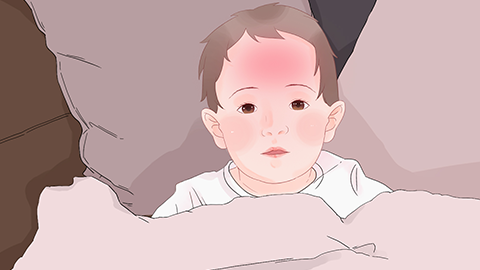What are the causes of persistent low-grade fever in children?
Generally speaking, a low-grade fever refers to a mild fever. Persistent low-grade fever in children may be related to underdeveloped thermoregulatory center, improper diet, emotional stress, upper respiratory tract infection, urinary tract infection, and other factors. It is recommended to seek timely medical attention, identify the underlying cause, and receive symptomatic treatment under the guidance of a qualified physician. Detailed analysis is as follows:

1. Underdeveloped Thermoregulatory Center
Children's thermoregulatory centers are not fully matured, making them less adaptable to environmental temperatures. They are prone to increased body temperature due to environmental temperature fluctuations or excessive physical activity, leading to low-grade fever. It is recommended to maintain suitable indoor temperature and humidity, and appropriately schedule children's activities and rest periods.
2. Improper Diet
Excessive food intake or consumption of high-calorie, high-fat foods in children can easily lead to indigestion and internal heat production, thereby causing low-grade fever. It is recommended to arrange children's diet reasonably and avoid overeating.
3. Emotional Stress
When children experience emotional stress or anxiety, they may develop autonomic nervous system dysfunction, leading to imbalanced temperature regulation and resulting in low-grade fever. It is recommended to pay attention to children's mental health and provide a warm and harmonious family environment.
4. Upper Respiratory Tract Infection
Upper respiratory tract infections are usually caused by viral or bacterial infections. Pathogens invade children's upper respiratory tract, causing nasal and pharyngeal mucosal congestion, edema, and inflammatory response, thereby leading to low-grade fever. Symptoms typically include runny nose, cough, and sore throat. Treatment may follow medical advice using medications such as compound paracetamol and amantadine tablets, azithromycin tablets, and isatis root granules.
5. Urinary Tract Infection
Urinary tract infections are typically caused by bacterial infection. Bacteria multiply within the urinary tract, causing an inflammatory response that elevates body temperature, thus leading to low-grade fever. Symptoms may also include frequent urination, urgency, and painful urination. Treatment may be administered under a doctor's guidance using medications such as cefuroxime axetil tablets, levofloxacin tablets, and fosfomycin trometamol powder.
During treatment and recovery, it is recommended to choose bland, easily digestible foods and avoid consuming greasy, spicy, or irritating foods to promote physical recovery.




